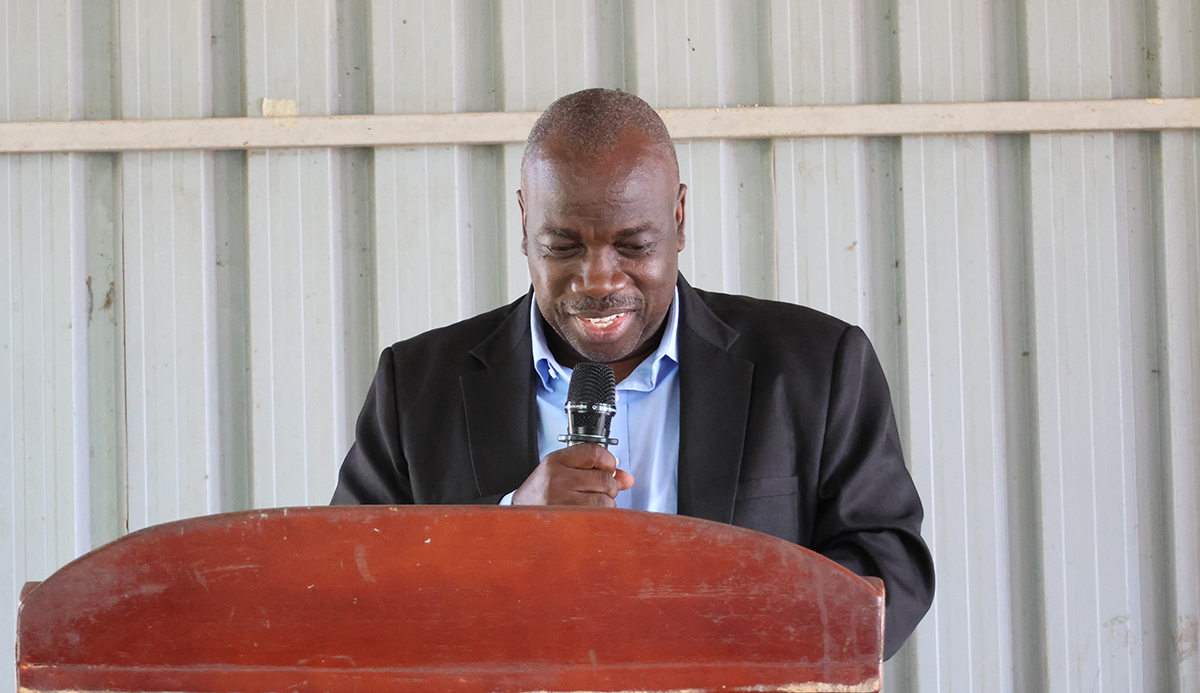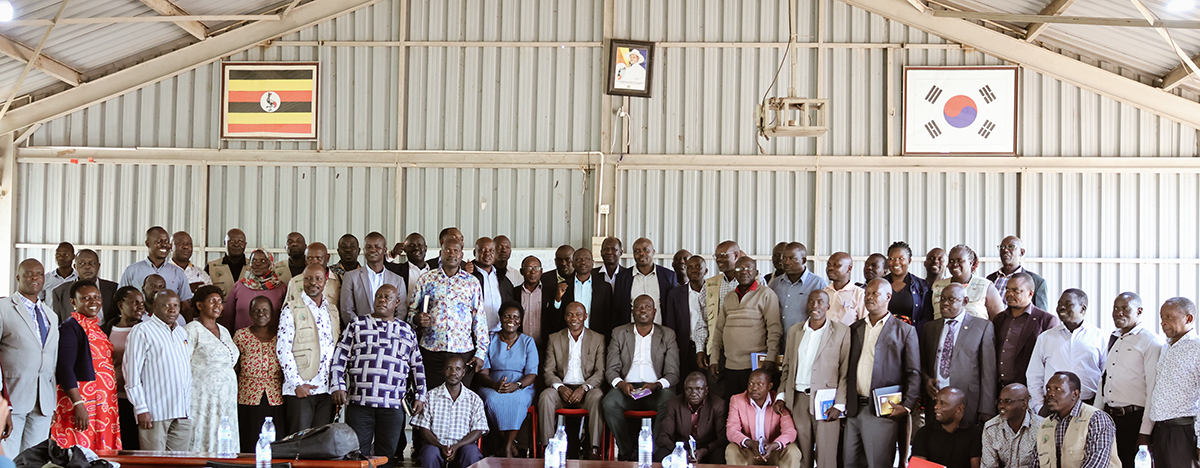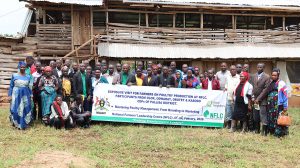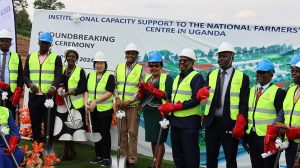The Ministry of Agriculture, Animal Industry and Fisheries (MAAIF) has concluded a three-day meeting with District Production Officers to discuss key strategic issues affecting the agricultural sector.

Dr. Patience Rwamigisa, Assistant Commissioner for Agricultural Extension Coordination at the MAAIF, in his opening remarks, urged the District Production Officers (DPOs) to reflect on the six-point program implemented over the past five years—specifically, the achievements made and the extent of its implementation. He also encouraged them to consider their role in the implementation of the National Development Plan (NDP) III.
He noted that several e-systems have been developed by MAAIF, such as e-dairy for the DPOs, but many of them are not fully functional. To address this, MAAIF has contracted a consultant to integrate all the systems into a single platform, and the process is currently ongoing.
Dr. Rwamigisa highlighted the key targets of NDP IV (likely meant to be NDP IV or clarify if it’s VI), particularly those relating to the agriculture sector. These targets include achieving an annual GDP growth rate of 6%, reducing the poverty rate to 10%, creating 1.8 million jobs annually—recognizing that agriculture is the country’s largest employer—and expanding the manufacturing sector. He emphasized that the success of these targets begins with the efforts of extension workers.
He further stressed that extension workers must have access to accurate agricultural statistics to support effective planning and forecasting.
The Director of Agricultural Extension Services at MAAIF, Dr. Henry Nakalet Opolot, in his closing remarks, noted that extension workers ought to have facts and figures — such as the number of farmers in their localities, including the percentage of subsistence farmers — which is a good indication that they are working at the grassroots level.
He proposed that this kind of meeting be held annually and urged the extension workers to operationalize the e-dairy platform, which MAAIF rolled out a few years ago.
He also observed that the project funded by the World Bank was projected to reach 50% completion by 2025 (starting from 2022); however, due to some challenges, it currently stands at 17%. He encouraged the extension workers to leverage the project to improve their work.
Dr. Opolot also cited a report on the performance of extension workers in Uganda by Operation Wealth Creation, which highlighted challenges, including inadequate training and poor quality of extension work. He noted that the report also proposed solutions to these challenges, which the Ministry is working to implement.
The Principal of the National Farmers’ Leadership Centre requested a partnership with extension workers, especially production officers, to conduct such trainings annually or quarterly, covering four districts at a time.

The meeting focused on reviewing the current status, achievements, challenges, and strategies for improving agricultural extension services. It also addressed priorities for the Financial Year 2025/26, including the National Development Plan IV (NDP IV), Agro-Industrialization (AGI), the Agricultural Sector Strategic Plan, the Uganda Climate Smart Agricultural Transformation Project (UCSATP), and the Parish Development Model (PDM), among others.
MAAIF implements national strategies, programs, and projects through district local governments — specifically the production departments — which are responsible for managing, supervising, and monitoring agricultural sector activities at the district level. The overall goal of these programs is to transform the agricultural sector from subsistence to commercial farming. Achieving this requires continuous engagement and coordination between local governments and the Ministry leadership.
The Government of Uganda has prioritized agro-industrialization under the National Development Plan IV (NDP IV) as a key driver of social transformation. To operationalize this, MAAIF has drafted a Sector Strategic Plan to guide activities over the next five years. Additionally, the Ministry is implementing the Uganda Climate Smart Agricultural Transformation Project in 69 districts to boost productivity and enhance adaptation to climate change. Furthermore, MAAIF oversees Pillar 1 of the Parish Development Model (PDM), the government’s flagship program for community-level development.
To ensure the success of these programs, it is essential to foster harmony in strategic direction and alignment of expected outcomes between MAAIF and district local governments.





